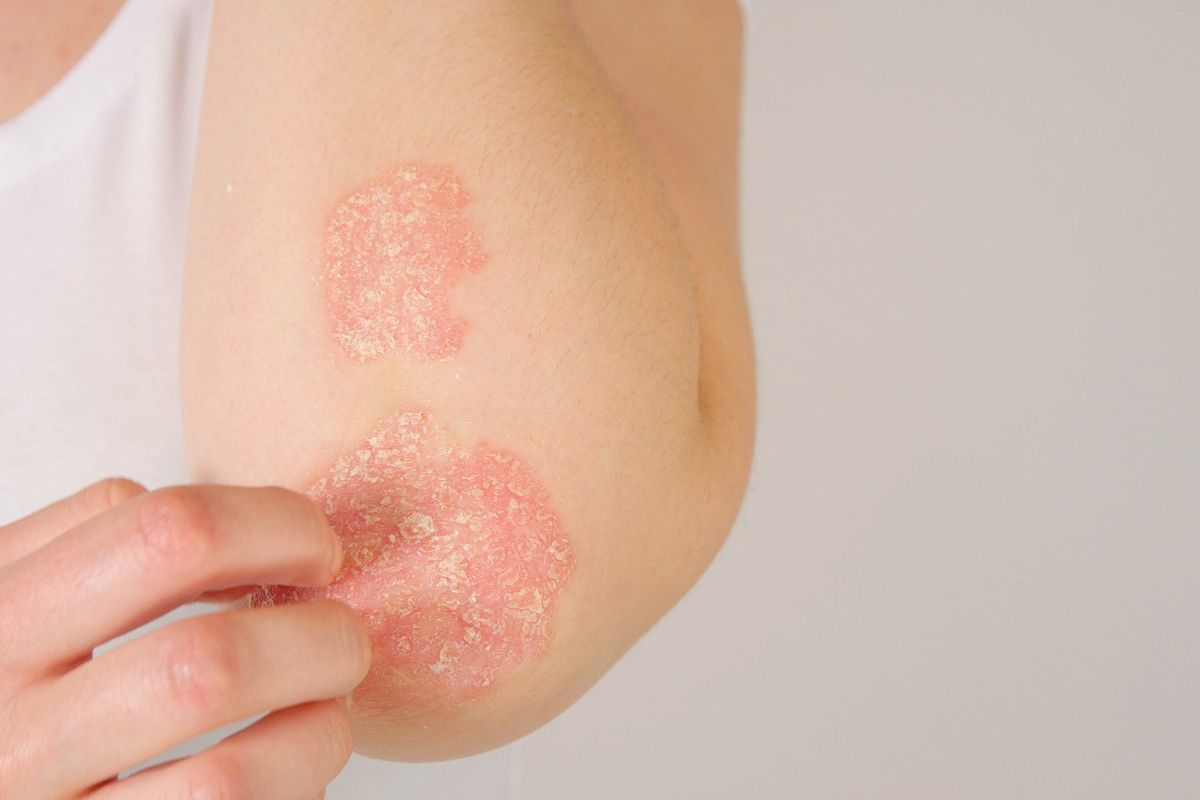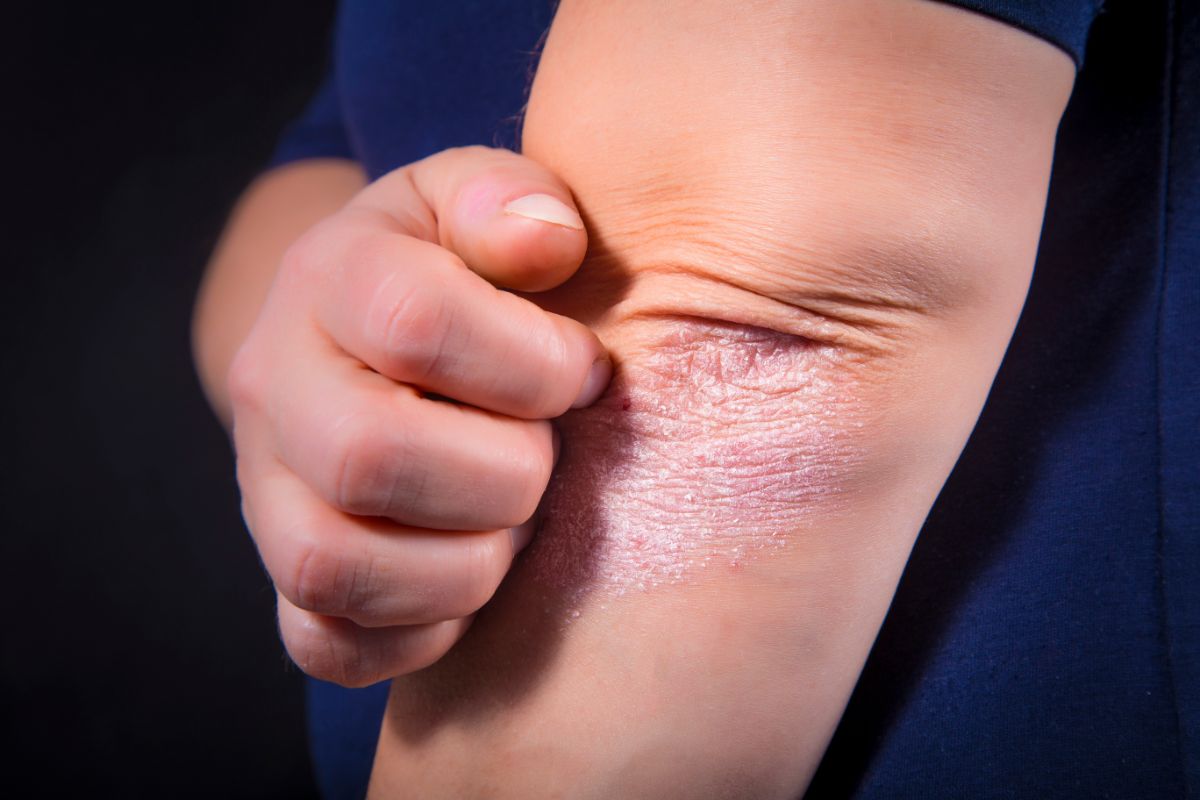Psoriasis can affect a person’s life in lots of different ways. It can affect your self-esteem and can be difficult to manage the symptoms. but most questions about scalp psoriasis time lapse.

The symptoms of psoriasis are very itchy and painful. It is a chronic illness that you will suffer from for the rest of your life once you have been diagnosed.
While it is possible to live a full life and manage these symptoms, it is important to try a variety of treatments to see which ones work best for you.
The goal for psoriasis treatment (see also ‘Best Psoriasis Medication & Other Recommended Treatments’) is to go into remission, meaning that you have no evidence of the illness on your skin.
Psoriasis on your scalp can be very painful. It will usually last anywhere from a few weeks to a few months.
It is important that you do all the right things to try and ease the symptoms of a flare-up and shorten the amount of time it takes to heal.
What Is Psoriasis?
Psoriasis is an autoimmune disease that affects the skin. It is a chronic illness, and there is no cure for disease.
If you suffer from psoriasis you will have it for the remainder of your life.
However, there are many ways to manage this disease and decrease the length of time that a flare-up will last.
These flare-ups occur because your immune system is not functioning properly. This causes your white blood cells to attack your skin cells as if these cells were harming the body.
Your body will overreact to this attack, and the skin cells in this area will begin to grow more rapidly.
When this happens, the cells will grow on top of each other which causes these itchy and painful patches.
How Long Does It Take For A Psoriasis Flare-Up To Clear Up?
Psoriasis flare-ups can last anywhere between a few weeks and a few months. These flare-ups usually come to an end and the symptoms subside.
These flare-ups are usually triggered by certain events such as infection, illness, stress, dry skin, and cold weather.
A psoriasis flare-up on your scalp can be very uncomfortable and it is marked by itchy, red, and dry patches on the skin.
It is most common to experience a psoriasis flare-up on your lower back, knees, skinfolds, and scalp.
Psoriasis Prognosis
Psoriasis is a condition that has no cure. However, with proper management and treatment, you can keep the symptoms under control.
Most people who suffer from psoriasis do not feel that their quality of life is affected by their psoriasis too much.
People who suffer from more severe cases of the illness may experience complications, and so it is important to try and manage the condition. Complications can include cancer and heart disease.
It is possible that if you suffer from psoriasis, you may experience some joint problems.
If you get an early diagnosis, the prognosis is much better than those who do not get treatment early on.
Remission
The goal for those who suffer from psoriasis is remission. Remission can last for months or years.
For some, the symptoms will completely disappear. Whereas, for others, it will almost completely clear up.
Remission is usually not permanent, and it is likely that at some point you will experience the symptoms again.

Possible Treatments For Scalp Psoriasis
There are lots of different ways to treat scalp psoriasis. Almost half of the people who suffer from psoriasis also experience it on their scalp.
In mild cases, there are many medications that you can use directly on the affected area.
If you are experiencing psoriasis in other parts of the body too, then you can opt for injections or medications taken by mouth that will treat all of it.
Often, your doctor will try a few different treatments before finding the one that works best for you. The options for medication are:
-
- Over-the-counter products that have salicylic acid or selenium sulfide in them. These products are used to soften the scales on your scalp, meaning they can be peeled off more easily.
-
- You can opt to use a brush or a comb to gently loosen the scabs to remove them.
-
- Use soap or shampoo that is high in salicylic acid.
-
- Apply creams that will help to keep your scalp moisturized.
In order to apply this medication to your scalp you should:
-
- Apply it using cotton balls. You can put petroleum jelly on the affected areas.
-
- Use the medications sparingly because you don’t want to overuse them.
-
- You can rub a cream or an ointment into your scalp.
-
- Sometimes it helps to use a shower cap on your scalp after you have applied the medication. This helps the lotions sink it. This is only true of some medications so check with your doctor.
Topical Medications
Topical medications are medications that you apply directly onto the scalp. This is for treating mild psoriasis.
Coal tar, salicylic acid, and retinoids are all used in this way for varying results. Coal tar manages the swelling and moisturizes the dry skin.
Salicylic acid removes the dead skin and scales and retinoids are used to reduce the inflammation caused.
Phototherapy Treatment
This is in the form of ultraviolet light. This can be used to treat the skin that is affected by psoriasis.
Systemic Drug Therapies
Systemic drug therapies affect the entire body. Oral retinoids and similar things work by suppressing the immune system.
This will stop the body from producing too many white blood cells.
Corticosteroids also work well to bring down the inflammation that you can experience from psoriasis flare-ups.
Certain changes to your lifestyle can help to reduce and manage the symptoms.
Healthy eating, a balanced diet, and avoiding stress and cold weather will help with the symptoms.
Final Thoughts
So, now you have lots of information on how long a flare-up of scalp psoriasis may last as well as some ways that you can reduce the flare-ups and help them to clear up more quickly.
Hopefully, you have all the information you need to help you on the road to remission!
- Understanding Male Reproductive Health: A Complete Guide - February 2, 2025
- Simple Healthy Skin Habits for Radiant Skin - December 6, 2024
- Unlocking the Connection Between Nutrition and Mental Health - December 3, 2024









